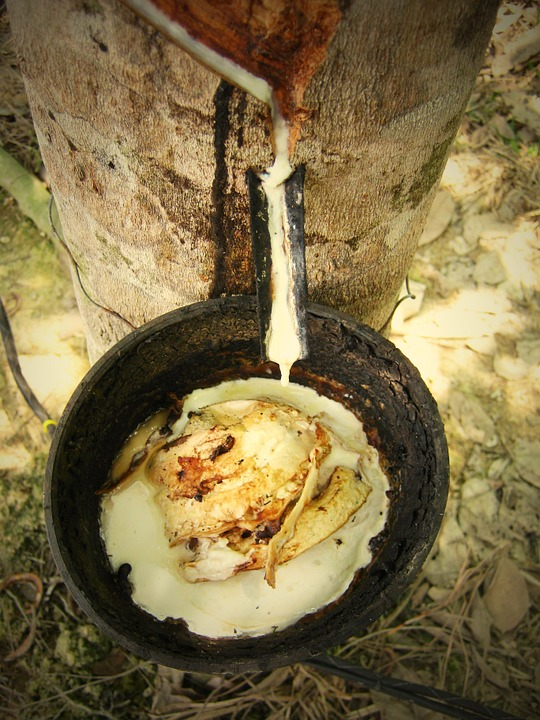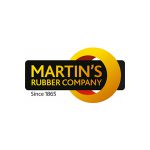Martin’s Rubber explain the advantages of natural rubber
Natural rubber is a remarkable material that undergoes a long journey from the bark of the Pará rubber tree, through to being vulcanised and then moulded into the final product that makes its way to your plant machinery. In this article, Martin’s Rubber explain the advantages of natural rubber.
Next time you jump in your car, spare a thought for how far your tyres have come – even before they began to operate on your vehicle. Before those tyres were moulded, they were vulcanised. This process (closely associated with tyre magnate Charles Goodyear) involves heating natural rubber with either sulphur, peroxide or bisphenol to improve its resistance and elasticity. Prior to that, however, your tyres started life as dripping latex, which is tapped directly from the Pará rubber tree.
The origin of natural rubber
Although the Pará tree is indigenous to South America, the British Empire introduced the rubber tree to many of its more tropical former colonies, including India, Singapore and Malaysia – now one of the biggest producers of rubber. From these trees comes latex; a sticky, milky substance that is harvested from incisions in the tree’s bark before being refined into rubber for commercial processing.
Properties of natural rubber
Natural rubber is composed of the polymer polyisoprene. Typically, a small percentage of other materials – including proteins, fatty acids, resins, and inorganic materials – are found in natural rubber. While polyisoprene can also be made synthetically, producing what is known as "synthetic natural rubber.”
Due to its unique physical and chemical properties, natural rubber in its raw form is susceptible to vulcanisation and sensitive to ozone cracking. In its useful forms, natural rubber boasts a large stretch ratio, high resilience and is extremely waterproof. It really is the Swiss Army knife of the materials world!
Natural rubber applications
In its raw, unvulcanised state natural rubber is relatively useless. However, the scope and scale of vulcanised rubber products is pretty much unlimited. Everything from those aforementioned tyres (which comprise an estimated 70% of the world’s natural rubber production) to rubber gaskets, O-rings and electrical safety matting all started life from the humble rubber tree.
All hail natural rubber!
Find out more about how we can untap the potential of your own bespoke rubber product, or offer you a range of off-the-shelf rubber products, by speaking to us on 023 8022 6330, or email [email protected].
Get the latest process industry news
Interested in receiving even more industry-leading news from Process Industry Forum delivered directly to your inbox? Then sign up to our free newsletter. Bringing you the latest news, trends, innovations and opinion from across the process industry, our exclusive newsletter gives you all the industry insights of the moment in one, easy-to-digest bulletin. Stay ahead of the competition with regular process industry news instalments from PIF.


